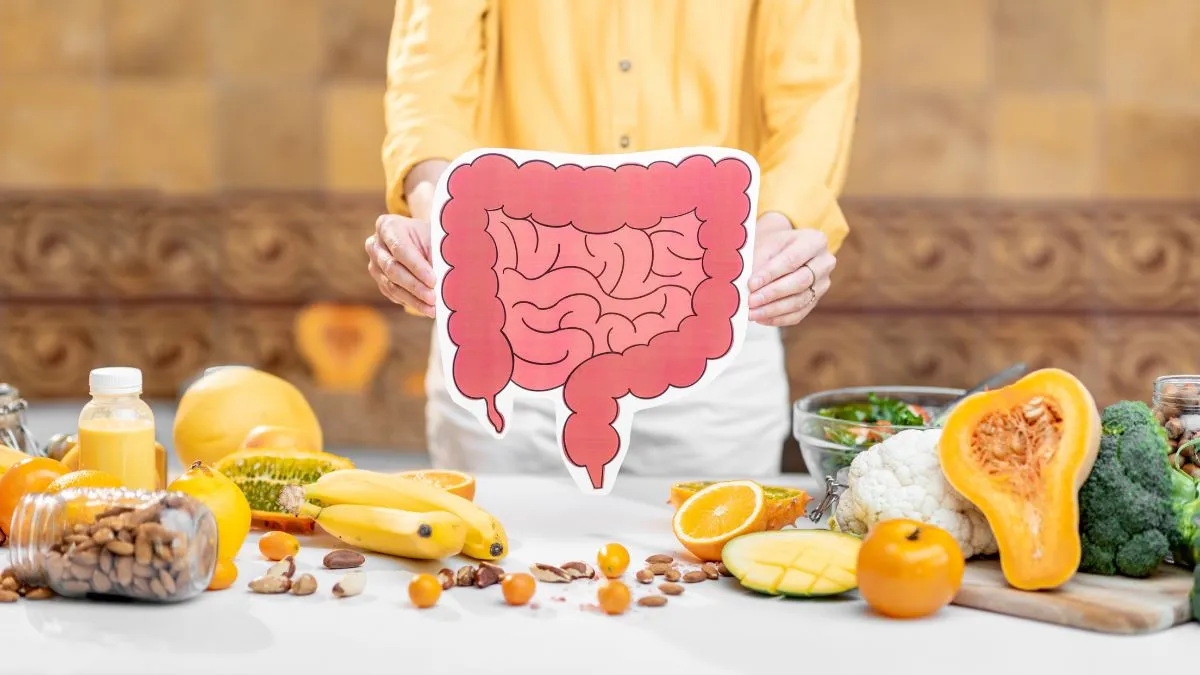- By Bornika Das
- Tue, 27 May 2025 08:39 PM (IST)
- Source:JND
The gut does more than just digest food, it plays a critical role in shaping overall health, including mental well-being. Often referred to as the "second brain," the gut is home to trillions of microbes that influence everything from nutrient absorption to immune function. Several studies and research have shown that there is a deep connection between gut health and brain function, revealing how imbalances in the gut microbiome can contribute to mood disorders like anxiety and depression. What people eat directly affects the diversity and health of these gut microbes, making diet a powerful tool in maintaining both physical and emotional balance.
The gut houses nearly 70 per cent to 80 per cent of the body's immune cells and produces about 95 per cent of its serotonin, the hormone responsible for mood regulation. Whether you’re looking to boost your mental clarity, stabilise your energy or improve your overall mood, understanding the gut-diet-mind connection could be your first step toward lasting change. In conversation with Jagran English, Mr. Nikhil Kapur, Methodical Entrepreneur, Ironman Triathlete & Sports Nutritionist - Founder & Director of Atmantan Wellness Centre, shares insights on how diet shapes gut health and mood.
Gut Health And Mood
The gut microbiota, the trillions of bacteria, fungi, and other microorganisms that live in our digestive tract, regulates immunity, inflammation, metabolism, and even brain function. But when this delicate balance is disrupted, a condition known as gut dysbiosis occurs. Mr. Nikhil Kapur explains, “This can trigger a cascade of chronic health issues, including auto-immune disorders, metabolic diseases, cardiovascular problems, and inflammatory bowel conditions such as Crohn’s disease and ulcerative colitis.”
A major factor influencing gut health is our diet. Consuming processed foods, excess sugar, fried items, and artificial sweeteners can degrade the diversity of our gut flora, increase inflammation, and damage the gut lining. He adds, “This can lead to “leaky gut” syndrome, where harmful substances escape into the bloodstream, promoting systemic inflammation.”
An anti-inflammatory diet can protect and restore gut health. This diet is rich in whole foods, including colourful fruits, seasonal vegetables, whole grains, nuts, seeds, and healthy fats like omega-3 fatty acids from flaxseeds or fatty fish. These foods nourish the gut lining and support a diverse, thriving microbial community.

Diet Shapes The Gut Health And Mood (Image Credits: Canva)
Tips To Strengthen Gut Health
Eat Diverse Range Of Whole Foods: A plant-based diet encourages a diverse gut microbiota, which is linked to better health outcomes.
Focus On Fibre-Rich Foods: Legumes, fruits, vegetables, and whole grains are excellent sources of prebiotics, the food for your good bacteria.
Include Fermented Foods: Yogurt, kefir, sauerkraut, and kimchi are rich in probiotics that replenish beneficial bacteria.
Stay Hydrated: Water supports digestion and the mucosal lining of the gut.
Limit Processed Foods, Refined Sugars And Alcohol: These promote inflammation and disrupt gut flora.
Avoid Artificial Sweeteners: These can negatively alter gut bacteria and glucose metabolism.
Adopt Mindful Lifestyle Habits: Chronic stress, poor sleep, and a sedentary lifestyle can harm gut health. Incorporate stress-reducing activities like walking, meditation, and deep sleep hygiene.
What Is The Gut-Brain Axis?
The gut-brain axis is a two-way communication system. Mr. Nikhil Kapur explains, “When the gut is inflamed or imbalanced, it can impact the brain, leading to mood swings, anxiety, or depression.” In turn, emotional stress can exacerbate gut symptoms. “By eating gut-friendly, anti-inflammatory foods, you support this delicate communication system and enhance both mental clarity and emotional resilience,” he states.
In conclusion, food is not just fuel, it's information for your body’s most intricate systems. A nourishing, anti-inflammatory diet paired with holistic lifestyle choices can protect your gut, calm inflammation, and uplift your mood.
ALSO READ: How Healing Gut Can Boost Mind, Body And Soul? Know From A Sports Nutritionist
ALSO READ: Chia Seed vs Coriander Seed Water: Which Drink Is Better For Gut And Heart Health?

